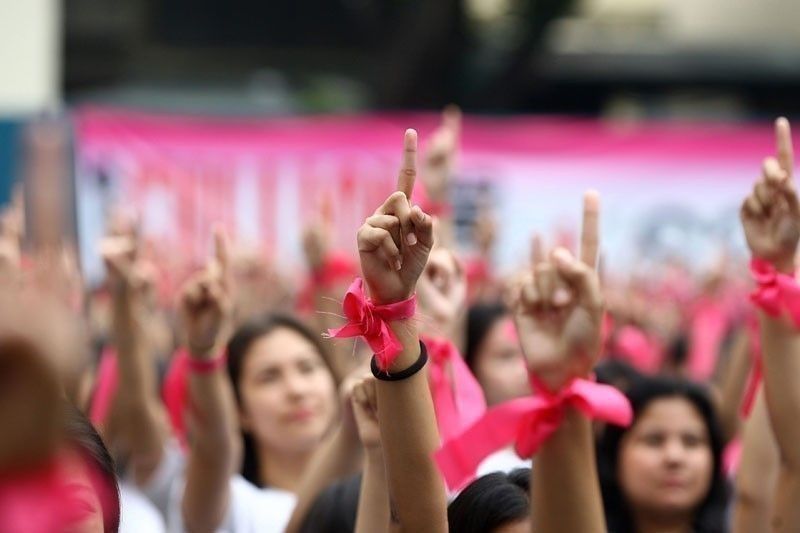Nearly all Filipinos biased against women due to ‘culture of misogyny’ — Gabriela

MANILA, Philippines — That nearly all Filipinos hold some bias against women according to an international study indicates a prevailing culture of misogyny that hinders women's empowerment in the country, Gabriela Women’s Party said on Wednesday.
New data from the United Nations Development Programme (UNDP) show that 99.5% of the population in the Philippines, including 99.33% of men and 99.67% of women, hold biases against women, based on survey data collected from 2017 to 2022.
This staggering finding by the UNDP echoes its global assessment that almost nine out of ten men and women worldwide still hold biases against women.
UNDP’s Gender Social Norms Index (GSNI) quantifies biases against women along four dimensions: political, educational, economic and physical integrity.
"These findings are very alarming and show that we still have a long way to go in terms of empowering women and other marginalized sectors," said Rep. Arlene Brosas (Gabriela Women's Party).
In terms of physical integrity, a high 92.83% of Filipinos displayed biases against women. This was evidenced by their reactions to statements related to the justifiability of domestic abuse and abortion.
Meanwhile, nearly four out of five Filipinos or 77.81% had economic biases against women based on their responses to the statements: “Men should have more right to a job than women,” and “Men make better business executives than women do.”
Additionally, approximately 43.61% of Filipinos held educational biases against women, as indicated by their views on whether university education is more significant for men than women.
Culture of misogyny propped up by sexualization, objectification of women
Brosas pointed out that the continued availability of “violent and sexy films with themes that are borderline softcore pornography” online has contributed to the normalization of violence against women.
Online shopping platforms Lazada and Shopee has also “failed to impose stiffer regulations in selling sexually explicit materials,” Brosas added.
"Women portrayed as sexual objects reinforce the country's culture of misogyny and sexism. Worse, these films are unregulated and are readily available to minors who use these online streaming applications," Brosas said.
Brosas has called on the government to prioritize measures that would promote women’s rights and protect them from violence and discrimination.
- Latest
- Trending




























